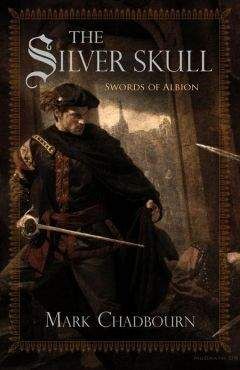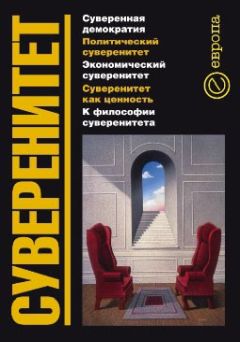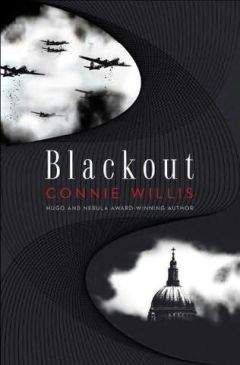В. Каушанская - Сборник упражнений по грамматике английского языка
1. Erik carried the books silently down to his own office, picked up his hat and coat as though he were in a daze and left the building. It would be a lovely thing, he thought, if Haviland were to get killed in an accident tomorrow so that nobody would ever know what a fool Erik was going to make of himself in embarking upon an impossible job. (Wilson)2. He began to whistle to the snake, to see if the music would have any effect on its movements, if it would make the snake dance... but the snake would not dance. (Saroyan)3. If she [little Emily] should come home while I'm away... or if I should bring her back, my meaning is, that she and me shall live and die where no one can reproach her. (Dickens) 4, That she should have been there, to hear everything—it was the last thing he had wanted. (Cronin)5. Later that evening, he got still another confirmation that he must be on the right track no matter what anyone else might say. (Wilson)6. When he reached the top landing, he had to stop, not simply because he was out of breath, but because a swelling excitement inside threatened to suffocate him. (Priestley) 7. She [Fleur] looked as if — as if she might do something to herself! She had no veronal, or anything of that sort, he hoped. And all the time he was wondering what had happened. If the issue were still doubtful — if she were still waiting, she might be restless, feverish, but surety she would not look like thisl No! It was defeat. (Galsworthy) 8. She never condemned him for not earning money, or suggested that he do anything but paint. (Stone)9. The assistant Commissioner stood at the corner as if he had forgotten something... I wish I had spoken to that man, the Assistant Commissioner thought, I wish I had asked him how he came to be unemployed; it might have been possible to find him work; but what good after all would that have been?... he is only one; it is impossible for me to help these men, only the state can do that... (Greene)10. How good he had always been to herl Incredible that he should die and take that goodness away, that she should never hear his flat-toned voice again, or feel the touch of his moustache on her cheeks or forehead. Incredible that he should never give her a chance to show that she had really loved him. (Galsworthy)11. Should I encounter the rascal in the street or a tavern... he would treat me familiarly as though I were his dearest friend. (Lindsay)12. Whatever else he might have been, beyond question he was Lord Cranstoun's brother. When a few days later he left with his kinsman Lord Mark for a stay in Bath, I began to hope that he might take this opportunity to slip away from Henley. (Lindsay)13. Mr. Lightwood would propose to me, if I would let him. (Dickens)14. What I want is that Tod should be made to see that his family mustn't quarrel with his nearest neighbours. (Galsworthy)15. But Bronwen must have seen me strain to move and speak, for she left the chair quickly as though she had jumped. (Llewellyn) 16. She was a business woman of high acumen, who saw to it that I should meet all people who might possibly be of professional value to me in the future. (Hansford Johnson) 17. It was the kind of outcry no little gentleman should ever permit himself, however deeply he may be aggrieved. (Wells)18. May your life together be as happy as mine and my old woman's has been. (Abrahams)19. I did not have to meet Ellen's eye, as she would not glance in my direction. (Hansford Johnson) 20. I should value it if you would keep me in touch. (Snow) 21. "You should not have made me wait so long," he said. "I don't know how I have been living; every hour seemed like years. You should have decided sooner." (James)22. It was important to him that she should be alone, that she should be available to speak with him privately at any hour, that she should be able to entertain his anonymous guests. (Murdoch)23. Whatever Rose may have been, she is not now a responsible scholar. (A. Wilson)24. I'm in favour now. It may not last twelve months. Things may begin to go the other way. You ought to know what to expect... For all we know, I'm at the top of the hill tonight. I may start moving downwards tomorrow. Or perhaps I've already started. We 've all got to remember that. (Snow)25. And now the day arrived when Mr. Dorrit and his family were to leave the prison for ever, and the stones of its much-trodden pavement were to know them no more. (Dickens)26. Nina stood stiffly for a moment, as if she were about to cry out. (Murdoch)27. After all, if he had any talent I should be the first to encourage it. If it weren't for the children, I wouldn't mind anything. I could be just as happy in a -shabby studio in Chelsea as in this flat. (Maugham)28. You shall come, whether you like it or not. (Reade)29. As Dr. Thome is our hero... and as Mary 'Thorne is to be our heroine... it is necessary that she shall be introduced and explained and described in a proper, formal manner. (Trollope)30. The fact is, sir, I have made up my mind that Mary Thorne shall be my wife — sooner or later, that is unless, of course, she should utterly refuse. (Trollope)31. When so much has been written about Charles Strickland, it may seem unnecessary that I should write more. (Maugham)32. There is no flattery too gross for a male. However much you may be on your guard, however much you ma'y think you dislike it, you will find yourself instinctively angling for female flattery and getting it. (Aldington)33. God may soften major Swindon's heart. (Shaw)34. Notwithstanding he thought it better that she should not remain in everyday contact with his father and one day he suggested that they should go back to live in Florence. Laura and the Count were astonished that he should propose such a thing and would not hear of it. (Maugham)35. If I'd only waited, perhaps it would have gone all right. I shouldn't have been so impatient. Oh, poor child, what have I driven her to? (Maugham)36. "She might have gone back home, you know." "She might, but I'll bet anything she hasn't." (Priestley) 37. He twisted himself a little round that he might more easily use the paper, pen and ink I had brought him. (Lindsay)38. Of course, I told myself, he might have been detained for some reason at the American Legation, but surely in that case he would have telephoned to the restaurant — he was very meticulous about small courtesies. (Greene)39. She had to show herself half an hour later, and she was sustained at table by the immensity of her desire that her father should not perceive that anything had happened. (James)40. Aunt Juley tried to say something pleasant: "And how will dear Irene like living in the country?" June gazed at her intently, with a look in her eyes as if her conscience had suddenly leaped up into them; it passed; and an even more intent look took its place, as if she had stared that conscience out of countenance. She replied imperiously: "Of course she'll like it; why shouldn't she?" Mrs. Small grew nervous. "I didn't know," she said, "I thought she mightn't like to leave her friends. Your Uncle James says she doesn't take enough interest in life. We think. — I mean Timothy thinks — she ought to go out more. I expect you'll miss her very much!" June clasped her hands behind her neck. "I do wish," she cried, "Uncle Timothy wouldn't talk about what doesn't concern himl" (Galsworthy)
Exercise 16. Translate into English, using the Subjunctive Mood and modal verbs where required.
(A)
Based on an episode from In Chancery by J. Galsworthy.
1. Соме пригласил Аннет и ее мать в свой загородный дом (country house), чтобы они видели, как он богат. 2. Возвращаясь домой, Соме думал об Ирэн. Двенадцать лет прошло с тех пор, как они расстались. «Она, должно быть, очень изменилась с тех пор. Ей, должно быть, теперь около сорока». 3. Он думал о том, что Ирэн всегда была несправедлива к нему. «Она могла бы относиться ко мне иначе. Разве я не давал ей все, что она только пожелает?» 4. «Странно, что она никогда не чувствовала себя счастливой со мной, — подумал он с горечью. — Странно, что она ушла от меня. Если бы она не сделала этого, мне не пришлось бы сейчас думать о разводе». 5. Мысль о разводе показалась ему нелепой после стольких лет полной разлуки (after all these years of utter separation). «Я уже давно должен был развестись с нею. Жаль, что я этого не сделал. Я был бы теперь свободен и мог бы жениться на Аннет». 6. «Как жаль, что у меня нет ребенка», — думал Соме: его угнетала мысль, что ему некому оставить свое состояние. 7. Аннет с матерью должны были приехать поездом, и он поехал на вокзал встретить их. 8. Была осень, и всюду видны были (можно было видеть) желтые листья. 9. Анкет была такая хорошенькая, что Соме не мог не залюбоваться ею. Ее лицо казалось таким свежим, словно его только что спрыснули (to be sprayed) росой. 10. За чаем они говорили о бурах. «С какой стати англичане вмешиваются в их дела (to interfere with somebody)? — сказала мадам Ламотт. — Они могли бы оставить их в покое». 11. Соме улыбнулся: ее слова показались ему нелепыми. «Неужели вы не понимаете, что Англии не следует отказываться от своих законных прав (to abandon one's legitimate interest)?» — сказал он. 12. После чая Соме предложил посмотреть его картинную галерею. Ему очень хотелось (to be anxious), чтобы Аннет увидела все его сокровища. Он был уверен, что как бы молода и красива она ни была, она выйдет за него замуж, когда увидит, как он богат.
(B)
Based on an episode irora Jane Eyre by Ch. Bronte.
1. «У нее TaKojni вид, как будто она маленькая фея, как будто она пришла сюда из сказочной страны (the fairy land)», — подумал мистер Рочестер, когда увидел Джейн в первый раз. 2. «Странно, что они пришли сюда, — подумала Джейн, увидев в церкви незнакомцев. — Они, может быть, слышали, что мистер Рочестер собирается жениться. Да, должно быть, слышали». 3. Когда один из незнакомцев потребовал, чтобы бракосочетание было прервано (to break off the ceremony), мистер Рочестер вздрогнул, словно перед ним разверзлась (to open) пропасть. 4. Священник сказал, что невозможно, чтобы миссис Рочестер все эти годы жила в Торнфильде. «Не может быть, чтобы она жила здесь столько лет. Мы бы давно услышали об этом»,—заметил он. 5. Джейн пожалела, что приехала в Торнфильд. «§ыло бы лучше, если бы я никогда не видела мистера Рочестера», — думала она. 6. Мистер Рочестер понимал, что сколько бы он ни уговаривал Джейк, она не останется с ним. Он жалел, что обманывал девушку. «Я должен был сказать ей, что я женат»,—думал он. 7. Джейн ушла из Торнфильда ночью, так как хотела (to be anxious), чтобы никто не узнал, куда она идет. 8. «Как мы были бы сейчас счастливы, если бы Джейн не покинула меня»,—думал мистер Рочестер. 9. Джейн не могла забыть дня, который должен был быть днем ее свадьбы (wedding day) и который окончился так трагически.
(С)
Based on Running for Governor by M. Twain.
В своем рассказе «Как меня выбирали в губернаторы» М. Твен говорит о том, как проходила предвыборная кампания (pre-election campaign), когда была выдвинута его кандидатура на пост губернатора (to be nominated for governor) штата Нью-Йорк. Однажды, просматривая газеты, Марк Твен увидел статью, которая его чрезвычайно удивила. Автор статьи говорил, что мистеру Твену давно пора рассказать, при каких обстоятельствах он оттягал (to gain by a lawsuit) у одной бедной вдовы в Кохинхине (Cochin-China) ее жалкий клочок земли (patch of land). М. Твен не верил своим глазам — он никогда не был в Кохинхине и не имел не малейшего представления, о какой вдове идет речь. «Неужели они сами верят тому, что написали про меня? — думал он. —Они, может быть, приняли меня за кого-нибудь другого? Наверное, есть другой человек, которого зовут так же, как меня (to bear the same name)». В каждой газете можно было найти статью, в которой говорилось о том или ином преступлении, совершенном М. Твеном. Автор одной из статей обвинял М. Твена в том, что он отравил своего дядюшку с целью завладеть его имуществом, и настаивал на немедленном вскрытии трупа. Автор другой статьи требовал, чтобы мистер Твен разъяснил своим избирателям, каким образом у его товарищей (fellow-workers) в Монтане то и дело пропадали (to lose) разные мелкие, но ценные вещи, которые они всегда находили либо в карманах мистера Твена, либо в его чемодане. Это соперники М. Твена возводили на него всякие нелепые обвинения (to lay a charge upon somebody), боясь, как бы его не избрали губернатором. Временами М. Твен чувствовал себя так, словно он действительно совершил все эти преступления. Руководители его партии просили М. Твена написать ответ на обвинения, чтобы его политическая карьера не была загублена (to ruin); они говорили, что ему необходимо опровергнуть (to refute) предъявленные ему обвинения. Но М. Твен понимал, что, что бы он ни делал, он навсегда потерял свое доброе имя.




